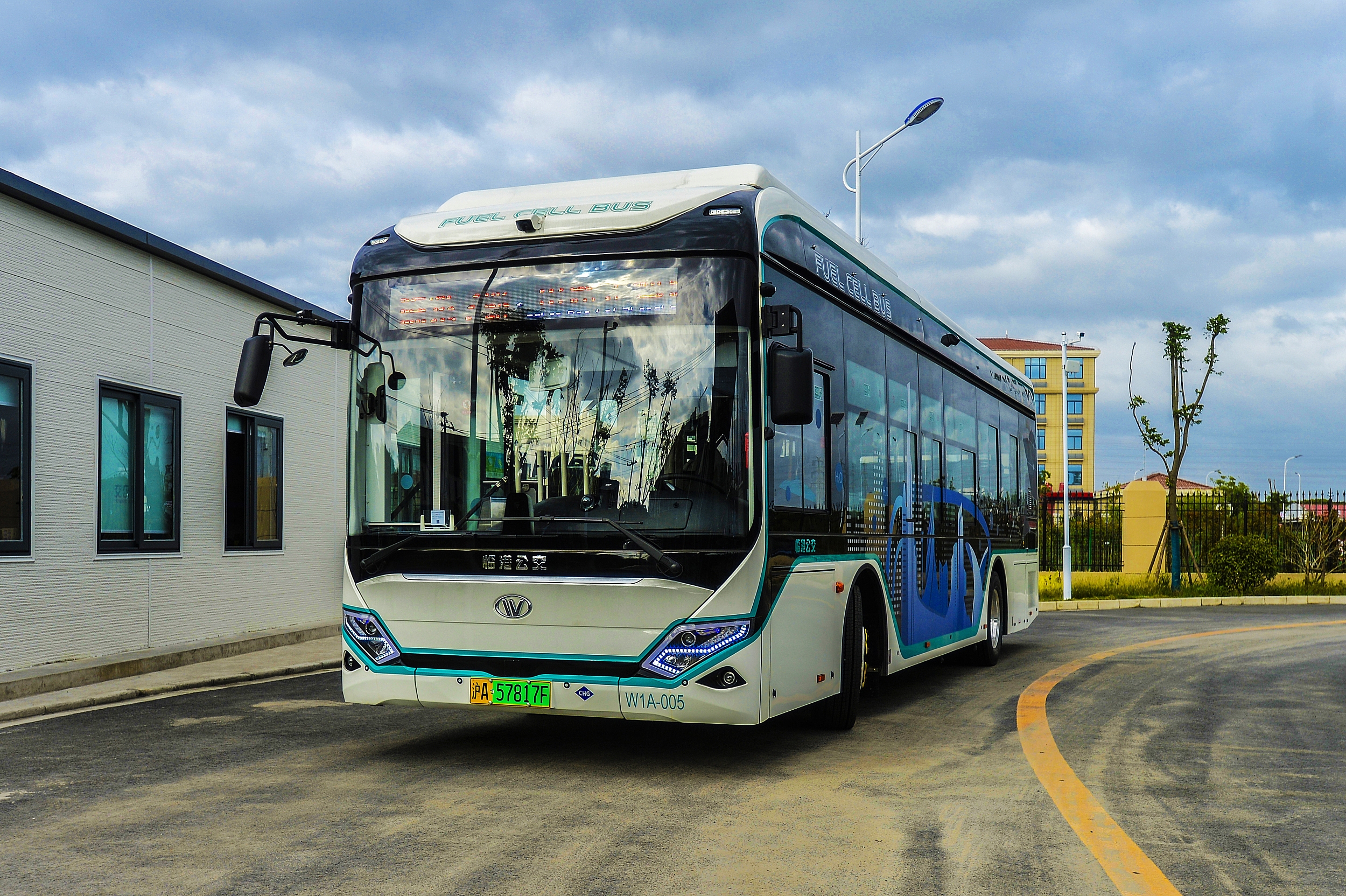
The first hydrogen-fueled bus line put into use in Shanghai's Lin'gang Special Area?in?2021.?(PHOTO: VCG)
By?Staff?Reporters
At the recently concluded 2022 Pujiang Innovation Forum held in Shanghai on August 27, green and low-carbon were trending topics.
Shanghai is speeding up the development of green and low-carbon industries. This year, Shanghai has released two low-carbon plans, including Shanghai's Action Plan to Promote the Development of Green and Low-carbon Industries on the New Racetrack (2022-2025) and Shanghai's Implementation Plan for Carbon Peaking, which show its dedication to green development.
Shanghai's ability to innovate in low-carbon technologies continues to improve. A total of 16 hydrogen-fueled buses had been put into use in Shanghai's Lin'gang Special Area (LSA) by late 2021. The number of hydrogen-fueled buses in this area will increase to 118 by the end of 2022, according to Sun Wenzhou, an official from LSA.
Hydrogen-fueled buses are more energy efficient than regular buses. An 11-meter-long automatic bus consumes about 33 liters of diesel per 100 kilometers, while a hydrogen-powered bus of the same size requires less than six kilograms of hydrogen per 100 kilometers. At present, the price of hydrogen at hydrogen refueling stations is only 35 RMB/kg after enjoying subsidies.
This initiative is a prime example of Shanghai's progress in developing new energy. Many enterprises have been making concerted efforts toward green transformation in Shanghai, and the transformation needs the support of sci-tech innovation.
In the above-mentioned Action Plan, Shanghai vowed to cultivate 10 manufacturing innovation centers and enterprise technology centers, both above the city level, five R&D, testing and verification platforms, and five large enterprise-typed research institutes and new R&D institutions, which has paved the way for this transformation.
This July, 60 new heavy trucks fueled by hydrogen were co-developed by Shanghai's two local car enterprises, which are exhaust fumes free. The battery systems for the heavy trucks came from Shanghai's local Refire Group.
There are enterprises in each link of the hydrogen energy and fuel cell industry chain in Shanghai. The most valuable thing is that these enterprises are working tirelessly to improve the level of "made in China," said Zhang Yanfeng from Shanghai Partnership of FCV.
Shanghai's new energy enterprises are also going global. Universal Energy (UE) is a local company. By July 2022, UE had built six new energy power plants totaling 380 megawatts in Kazakhstan.
"When put into use, they will reduce carbon dioxide emissions by 900,000 tons per year and meet the demand of about 600,000 local households for cheap, environmental-friendly and sustainable electricity," said Nan Yi, chairman of the UE.
The trio will conduct a series of experiments in fields such as life science, fluid physics, combustion science and materials science. Notably, this is the first time that fruit flies have been taken on a Chinese space mission as experimental subjects. What made scientists choose fruit flies? What experiment will they undergo?
